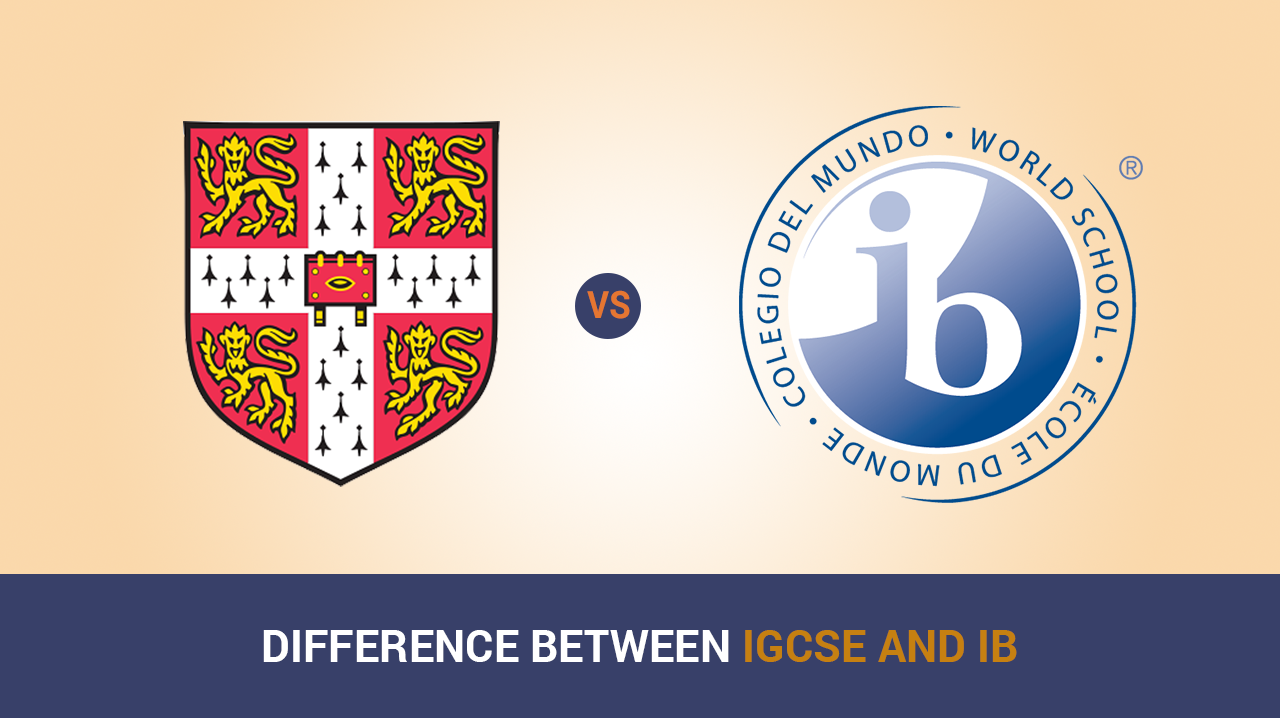Understanding the Differences Between IGCSE and IB

In the domain of international education, two top curricula frequently strive for the focus of guardians looking for a globalized growth opportunity: the International General Certificate of Secondary Education (IGCSE) and the International Baccalaureate (IB) program. These curricula, albeit both intended to give an international perspective, differ significantly in their structures, philosophies, and outcomes. In this investigation, we’ll unwind the vital distinctions between IGCSE and IB, empowering guardians to come to informed conclusions about their kid’s educational journey.
- Philosophy and Approach:
IGCSE:
The IGCSE educational plan, created by Cambridge Assessment International Education, is known for its subject-specific concentration and flexibility. It permits understudies to pick a set number of subjects, giving an expansive yet concentrated education. The accentuation is on the profundity of information in picked subjects.
IB:
The IB program, then again, is established in a holistic educational philosophy. It includes a more extensive range of subjects and puts areas of strength for interdisciplinary learning. The IB system is intended to foster well-rounded people with a global outlook.
- Age Group and Duration:
IGCSE:
IGCSE is typically embraced by understudies in the 14 to 16 age group (grades 9 and 10). The educational plan traverses two years, and understudies for the most part take the last assessments toward the finish of the subsequent year.
IB:
The IB program is structured for understudies aged 16 to 19 (grades 11 and 12). It is a two-year program culminating in the International Baccalaureate Confirmation, which is generally recognized by colleges globally.
- Curricular Structure:
IGCSE:
IGCSE is subject-centered, permitting understudies to pick a specific number of subjects from different disciplines. The educational plan expects to give inside and out information and prepare understudies for the following period of their education.
IB:
The IB program has a more complete structure, comprising six subject groups, including languages, sciences, math, expressions, people, and social orders, and an interdisciplinary course called Hypothesis of Information (TOK). Understudies should pick one subject from each group.
- Assessment and Grading:
IGCSE:
Assessment in IGCSE is typically assessment-based, with an emphasis on finishing tests. Understudies are evaluated on a scale from A to G, with A showing the most significant level of accomplishment.
IB:
The IB program utilizes an assortment of assessment techniques, including inner assessments, coursework, and remotely evaluated assessments. Understudies get a grade out of 7 for each subject, with a greatest all out of 42 focuses for the confirmation.
- Flexibility and Specialization:
IGCSE:
IGCSE offers flexibility in subject decisions, permitting understudies to fit their education to their inclinations and future scholar or professional objectives. It obliges a more particular approach to learning.
IB:
The IB program, while far-reaching, likewise offers some flexibility. Understudies can pick higher level (HL) and secondary level (SL) subjects in view of their assets and interests. Be that as it may, the emphasis on a well-rounded education remains.
- University Recognition:
IGCSE:
IGCSE is generally recognized by colleges and educational foundations globally. It fills in as a forerunner to different post-16 educational pathways, including A-levels and the IB program.
IB:
The IB certificate is profoundly respected by colleges overall for its rigorous scholastic standards and holistic approach. Numerous colleges esteem the different abilities and international perspectives that IB graduates bring to their scholarly networks.
- Cost and Accessibility:
IGCSE:
IGCSE is frequently seen as more cost-powerful, making it accessible to a more extensive scope of understudies. The accessibility of resources and study materials is far and wide.
IB:
The IB program can be more resource-intensive concerning charges and materials. In any case, monetary help and valuable open doors might be accessible, and the program is presented in numerous nations around the world.
Conclusion
Guardians should consider their youngster’s advantages, favored learning style, and long-term objectives while pursuing this choice. Both IGCSE and IB offer excellent international education, and the decision eventually lays on adjusting the educational approach to the understudy’s extraordinary attributes and aspirations.

